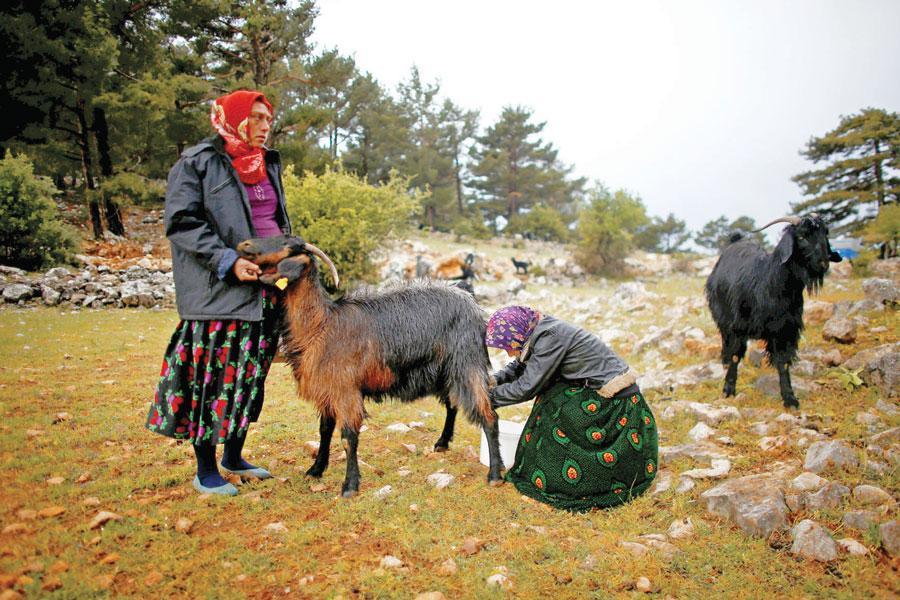Turkey’s last nomads roam Anatolia
MERSİN - Reuters

When summer comes to southern Turkey, the goats become restless and the Gobut family knows it is time to pack their tents and embark on the long trek north with their herd of 1,000 animals.
The family is part of the nomadic Yörük tribe which for more than a millennium has crisscrossed Anatolia, a region that includes much of Turkey. Half a century ago, 1,000 families roamed the Anatolian steppe but now there are just 86.
That drop mirrors a decline in the number of nomadic tribes worldwide over the past century due to industrialization and agricultural development.

The Gobuts are a family of eight spread over three generations. They spend six months a year on the road and live in tents made of goat fur.
They leave the southern province of Mersin in late April each year and arrive 600-km north in the central province of Konya in July, only to start the return trip a few days later.
On the way, they pitch tents each night and while away the evenings beside a campfire built right inside their tents as their goat herd graze nearby.

One family member sleeps outside with the herd and four shepherd dogs to guard against wolves that the family calls monsters.
The family makes its living from the goats. They make cheese from the milk, use fur to make tents and earn money by selling about a third of their goats en route.
Each goat has a name and is treated as part of the family. The smaller ones are transported on a pick-up truck. “We never call them ‘animals’, we call them ‘companions’,” said Pervin Savran of the Sarikeçililer Cooperation and Collaboration Foundation, which represents the Yörüks.
“Everything we do - eating, sleeping, waking - depends on our companions. Such is our bond,” Savran said. Staple food also includes tomatoes and ‘bazlama,’ a flatbread made from freshly ground floor bought on the road.
The Gobuts have mobile phones but for news they listen to the radio for 15 minutes each evening. One son, Yunus, is given leave to miss primary school after April to go on the trek.
His sister-in-law Rukiye gave birth to her first son in April and a few days later was out shepherding the goats with her son in her arms.
Gülay, the family’s only daughter, studied medical supply marketing at a college in the mid-western province of Bilecik. She rejoined her family because she couldn’t find work, but said she misses the settled lifestyle.
“I had a social life in college ... [and] I could go to the hospital whenever I needed to,” she said. “But none of these exist in the nomadic life. We are alone with nature.”
More Yörük families choose to leave their nomadic life behind as water becomes scarce and farmers and villagers become more hostile. Sometimes they even take goats hostage when the Yörüks enter their land.
“There are days when we have to migrate quickly at night on asphalt for hours while the main roads are still empty,” Savran said.
















